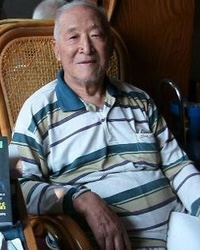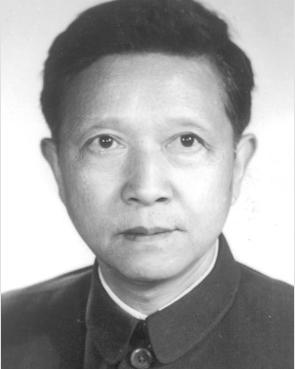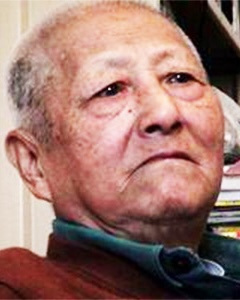
Gan Cui
Gan Cui (1932-2014) joined the People's Liberation Army in 1949 and the Chinese Communist Party in 1954. After the founding of the People's Republic of China, Gan worked as a reporter for the newspaper *Wan County News* in Wan County, Sichuan Province, and was admitted to the Department of Journalism of the Renmin University of China in 1955. In 1958, Gan was labeled a Rightist and expelled from the Party. While he was subjected to supervised labor on campus, he met and became romantically involved with the poet Lin Zhao. Upon his graduation in 1959, Gan requested to stay close to Lin Zhao, but instead he was exiled to a labor camp in Xinjiang for 20 years. (Lin was later arrested and executed in 1968; see separate entry.) In 1979, Gan was rehabilitated, resumed his Party membership, and returned to Beijing. He then worked at the CCP Propaganda Department of the Chinese Academy of Social Sciences (CASS), and later at the Institute of Literature of the CASS, before retiring in 1992. He died due to illness on October 23, 2014.
During the 1989 democracy movement, Gan went to the Tiananmen square daily to observe, record and collect materials. In the same year, he wrote a book entitled *The Soul of Peking University: From Lin Zhao to the 1989 Democracy Movement*, which was published in Taiwan in 2010, linking his memories of Lin to the June Fourth uprising. To inform the public about Lin Zhao, Gan also transcribed Lin’s most famous letter in prison – the 140,000-character “*A Letter to the Editorial Board of People's Daily*”, participated in the making of a statute of Lin, and provided full support to research on Lin, including helping independent filmmaker Hu Jie to produce a documentary about Lin and supporting Zhao Rui in writing *The Saint on the Altar: Lin Zhao Biography*.

Yao Jianfu
Yao Jianfu (October 9, 1932—) was born in Nanjing. His father was a Kuomintang officer who participated in a coup against the KMT during the Huaihai Campaign; his mother was an elementary school teacher. Yao graduated from Harbin Institute of Technology in 1957 and was assigned to the China Academy of Agricultural Mechanization Science as an engineer. During the Great Famine, Yao was sent to work in a rural commune in Shanxi Province for one year, where he witnessed firsthand the conditions of the peasants. During the Cultural Revolution, Yao's family was targeted; Yao's mother was beaten to death by Red Guards and his father hanged himself. Yao himself was labeled a counter-revolutionary for having made disrespectful remarks about Jiang Qing (the fourth wife of Mao Zedong and deputy director of the Central Cultural Revolution Group in 1966), and was sent down to a labor camp in Hunan province. He was rehabilitated after the Cultural Revolution.
In 1982, Yao was assigned to the CCP Rural Policy Research Office and the Rural Development Research Center of the State Council as a researcher; in 1992, he became a researcher at the Rural Economy Research Center of the Ministry of Agriculture, a position he held until he retired. In 2003, he was a coordinate researcher at the Yenching Institute of Harvard University.
Yao is concerned with public affairs and is a frequent commentator on history and politics in China. He has interviewed Zhao Ziyang, a reformist leader during the 80s and purged after the 1989 student movement; he has also interviewed Chen Xitong, the then Party Secretary of Beijing during the 1989 democracy movement who was considered one of the main suppressors of the movement, and published a transcript of that interview in 2012, *Chen Xitong’s Personal Accounts*.
In April 2014, journalist Gao Yu was arrested by authorities for exposing a CCP document containing policies against media freedom and democracy. Yao was arrested in the same case and released on bail pending trial, but has never been fully freed. Yao was reportedly living in a nursing home but under close surveillance.
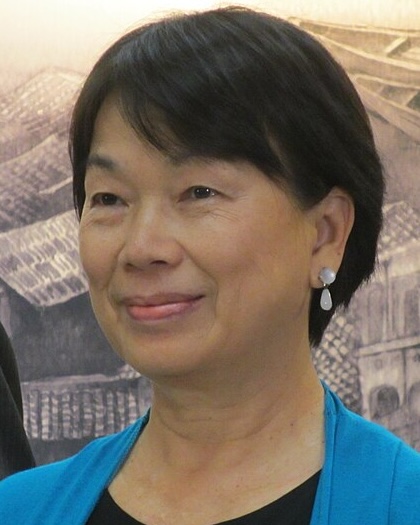
Lung Ying-tai
Lung Ying-tai (February 13, 1952-) is a Taiwanese writer, literary critic, and Taiwan's first Minister of Culture. Lung is a native of Kaohsiung and her parents moved to Taiwan during the Chinese Civil War. She graduated from the Department of Foreign Languages and Literature of National Cheng Kung University, and later received a doctorate in English and American literature from Kansas State University. She has taught at various universities in Taiwan, Hong Kong, the United States, and Germany, during which time she published a large number of works, including essays and novels, which have been collected into books.
In 1999, at the invitation of then Taipei Mayor Ma Ying-jeou, Lung became Director of the Department of Cultural Affairs of the Taipei City Government, stepping down in 2003. In July 2005, Lung established the Lung Ying-tai Cultural Foundation. In 2012, she became the Minister of Culture of Taiwan (Republic of China), stepping down in 2014 with the general resignation of the Cabinet.
Lung has published a number of influential works, including Ye Huo Ji (The Wild Fire Collection), Mu Song (The Farewell), and Qin Ai De Andelie (Dear Andreas). One of her most influential works, Da Jiang Da Hai 1949 (Big River, Big Sea: Untold Stories of 1949), a reflection of the Chinese civil war and the Kuomintang’s treat to Taiwan, was banned by Beijing the same year it was published in 2009. In 2019, China banned all of Lung's books due to her expressed support for Hong Kong's Anti-Extradition Bill movement.
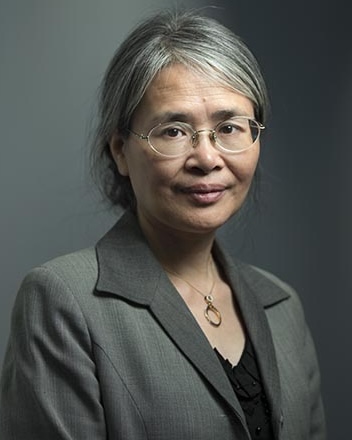
Feng Yuan
Feng Yuan (1962—), a journalist, and a feminist activist. Feng Yuan was born in 1962 in Yilong County, Sichuan, and took her mother's surname. In 1979, she was admitted to Fudan University’s Journalism Department and graduated with a bachelor's degree in 1983. She then pursued a master's degree in journalism at the Graduate School of the Chinese Academy of Social Sciences, completing it in 1986. During her internship at <i>People's Daily</i> in 1983, she met Wang Ruoshui, a philosopher and former deputy editor-in-chief of <i>People's Daily</i> who was being criticized and removed from his post. Feng Yuan married Wang Ruoshui in 1987.
Feng Yuan was transferred out of <i>People's Daily</i> in 1991 due to her inability to accept the suppression of civilians during the 1989 Tiananmen Square crackdown. From 1993 to 1994, she accompanied Wang Ruoshui to Harvard University, where she read feminist literature, audited courses, and became involved in feminist activities on campus. Upon returning to China, Feng Yuan joined <i>China Women's News</i> and devoted herself to feminist and anti-domestic violence activism. She was selected as a Nieman Fellow for 2002 at Harvard University, and she lived in the U.S. with Wang Ruoshui from 2000 to 2002. While at Harvard, Wang Ruoshi died of lung cancer.
Feng Yuan's feminist activities cover multiple fields, including advocating for anti-domestic violence legislation, conducting gender equality awareness training, building leadership among rural women, and empowering women with HIV/AIDS. Since the 1980s, Feng has been active in China's feminist issues: she was a firsthand participant in the 1995 Fourth World Conference on Women (Beijing World Conference), which had a profound impact on her activism, making her one of the early participants in China's feminist NGOs.
Feng Yuan has dedicated significant energy to the fight against gender-based violence. She served as an advisor and visiting professor at the Shantou University Women's Studies Center and contributed to the advocacy for China’s first Anti-Domestic Violence Law. The law began its legislative process in 2015 and was implemented in 2016. Feng Yuan was one of the leaders driving the law's passage, working for 15 years to push for its grassroots legislation. She also actively engaged with women's rights organizations, co-founding the "Beijing Women’s Rights Organization" in 2014. After the law's implementation, she shifted to a supervisory role and annually published the only professional civil monitoring report on the law.
Four years after the Anti-Domestic Violence Law was passed, Feng Yuan discussed ongoing domestic violence cases in China during an interview with <i>Initium</i> and <a href=”https://theinitium.com/zh-hans/article/20201214-opinion-interview-domestic-violence”>stated</a>that criticizing local governments for ongoing domestic violence was too mild:
"It pretends like the problem lies at the local level; As if they are the only ones failing, while the mid-level and high-level governments bear no fault... The issue of inaction appears to be a local problem, but in reality, it is a systemic one. Whether it is the Women's Federation, public security, civil affairs, or healthcare, they are all the same." She emphasized that addressing domestic violence is not just about the issue itself but also closely related to law enforcement personnel training, power allocation, judicial perspectives, supporting legal measures, accountability and oversight systems, as well as social culture and media freedom.
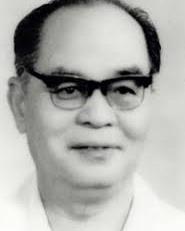
Wu Leng xi
Wu Lengxi (December 14, 1919 - June 16, 2002) was a vice minister of the Publicity Department of the Central Committee of CCP, minister of National Radio and Television, and party secretary of Guangdong Province.
A native of Xinhui County, Guangdong Province, Wu entered the Yan’an Anti-Japanese Military and Political University in 1937 and joined the CCP the following year. From 1939 to 1964 he served as editor of the CCP weekly magazine *Jiefang (Liberation)*, editor and director of CCP newspaper *Jiefang Ribao (Liberation Daily)*, editor-in-chief and director of Xinhua News Agency, editor-in-chief of CCP’s flagship newspaper *People's Daily*, and vice minister of the Publicity Department of the Central Committee of the CCP.
During the Cultural Revolution, Wu was suspended from his position and persecuted for failing to lead the *People's Daily* in cooperating with the Cultural Revolution propaganda. He was reinstated in his position in 1972, and later led the editing and publication of Mao Zedong's writings and served as a researcher of the State Council. In April 1980, he became the party secretary of Guangdong Province, where he concurrently served as a vice director of the Party Literature Research Center of the Central Committee of the CCP. In April 1982, Wu became the head and party secretary of the Ministry of Radio, Film and Television. He retired in 1998. On June 16, 2002, he passed away in Beijing.
Wu wrote and published *Recalling Chairman Mao-Several Fragments of Major Historical Events I Have Personally Experienced*, *Ten Years of War: A Memoir of Sino-Soviet Relations 1956-1966*, and *New Explorations, the Rectification and the Anti-Rightist Campaign (A Memoirs by Wu Lengxi)*.

Cheng Nien
Nien Cheng (pinyin: Zheng Nian, January 28, 1915 - November 2, 2009) was a Chinese-American writer. She was originally from Hubei Province and her father was a KMT official. Cheng studied at Yanjing University, then at the London School of Economics and Political Science in the United Kingdom, during which she married a Chinese student Zheng Kangqi. After completing their studies, The couple returned to China to support the war against Japan. Zheng Kangqi joined the Ministry of Foreign Affairs and later was stationed in Australia, where the couple lived for seven years. After 1949, the couple returned to Shanghai, and Zheng Kangqi worked for the British Shell International Petroleum Company as the General Manager of its Shanghai office. In 1957, Zheng Kangqi died of cancer, and Nien Cheng began to work as an assistant to the new General Manager, succeeding her husband. During the Cultural Revolution, Cheng was accused of being a British spy, had her home raided, and was detained in Shanghai's No. 1 Detention Center from 1966 to 1973, during which her only daughter was killed by Red Guards. After her release, Cheng worked for the local People's Political Consultative Conference, until she moved to the U.S. in 1980. In 1986, Cheng published Life and Death in Shanghai, a book documenting her personal experiences from the beginning of the Cultural Revolution to her departure for the U.S. The book was translated into several languages and published in various countries. On November 2, 2009, Cheng passed away in Washington, D.C. due to illness.
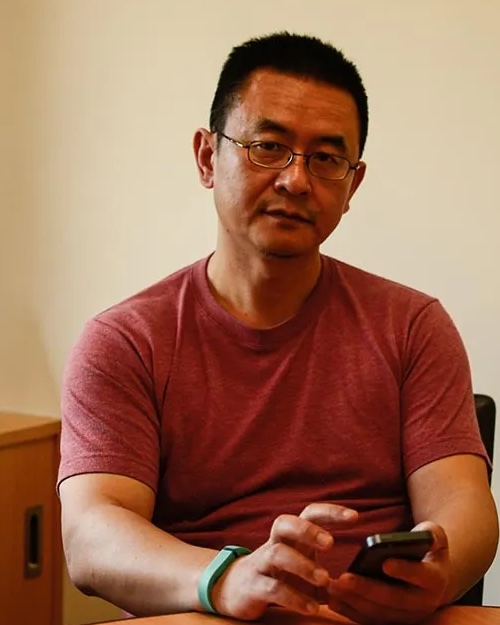
Zhou Hao
Zhou Hao (1968-) is a documentary film director, screenwriter and photojournalist. He used to work as a photojournalist for Xinhua News Agency and <i>Southern Weekly</i>. Zhou is concerned with social issues, and made photo reports on issues such as industrial pollution, and the Three Gorges dam. In 2001, Zhou began to try his hand at documentary filmmaking, and has made more than 20 films on issues ranging from Chinese internal migrant workers, left-behind children and the elderly, to environmental pollution. In 2006, his second documentary film <i>Senior Year</i> (about Chinese high school students preparing for university exams) was awarded the Humanitarian Award (Best Documentary) at the Hong Kong International Film Festival. In 2014 and 2015, his works <i>Cotton</i> (about China's cotton industry) and <i>Datong</i> (about the demolition and relocation policy in China) were awarded best documentaries at the 51st and 52nd Golden Horse Awards respectively.

He Shu
He Shu (June 1948-) is a historian of the Cultural Revolution. Born in Chongqing, He Shu graduated from junior high school in 1964 and was unable to enter high school because his father was labeled a Rightist. He was recruited to build roads during the Sichuan Petroleum Battle (a CCP campaign to discover oil fields) in 1965, and then worked in a steel factory in the outskirts of Chongqing in 1972. In 1981, he worked for Chongqing People's Broadcasting Station as an editor of the literature and history program, and then transferred to the Party History Research Office of the CCP Chongqing Municipal Committee in 1989, where he participated in the founding of the Hong Yan Chun Qiu (Annals of the Red Crag) Magazine where he served as deputy editor-in-chief and deputy copy editor. He Shu has been dedicated to research on the Cultural Revolution since his retirement. In 2008, together with Wu Di (Qi Zhi), a professor at the Beijing Film Academy, he founded Remembrance, an electronic periodical for research on the history of the Cultural Revolution; in 2011, He Shu withdrew from Remembrance, and launched Yesterday, an electronic periodical for research on the Cultural Revolution.
He Shu has conducted in-depth research on the history of the Cultural Revolution, especially Chongqing during the Cultural Revolution, and has published several books on Chinese history, especially the history of the Cultural Revolution, as well as more than a hundred articles.

Hui Wen
Hui Wen, a native of Sichuan, graduated from Renmin University of China and was assigned to work at the Institute of Modern and Contemporary History of the Chinese Academy of Sciences. In the second half of 1960, Hui Wen, as a Communist Party cadre, went to Jianyang County, Sichuan Province as part of a working group on rural commune remediation, during which he witnessed the situation of peasants amidst the Great Famine. At the end of 1962, Hui Wen was reassigned to work at the Chongqing Party school. After his retirement, Hui Wen compiled a book on what he witnessed during his time in Jianyang, titled *Chronicle of Rural Remediation of Communes in Difficult Times*.
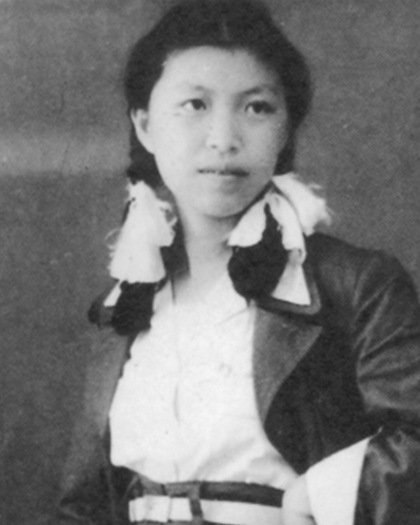
Lin Zhao
Lin Zhao (the pen name of Peng Lingzhao) was a writer and poet. Born on January 23, 1932 Lin grew up in an intellectual family in Suzhou, Jiangsu Province.
In 1947, she enrolled in the Suzhou Jinghai Women's Normal School, a Methodist girls school and was baptized. She secretly joined the Chinese Communist Party in 1948, and began writing critiques of the Kuomintang-led government under the pen name Lin Zhao.
She lost her CCP membership in less than a year because of her disobedience to the Party. After graduating in 1949, she ignored her parents' advice to go to university and, at the risk of breaking with her family, enrolled in the Party-run Sunan Journalism College, and then participated in the Land Reform Movement after graduating in May 1950. She worked hard to rejoin the Party, but was not accepted.
In 1952, she was assigned to work for Changzhou People News, and then for the Changzhou Federation of Literary and Art. In 1954, Lin enrolled in the journalism program at the Chinese Literature Department of Peking University, where she joined the Peking University Poetry Society and later became an editor of the campus publication Red Chamber. It was there that she broke with Communism and gradually rediscovered her Christian faith.
In 1957, Lin was labeled a Rightist for speaking up for other students. One of her poems from that era read:
<i>The power of truth
never lies in
the arrogant air
of the guardians of truth.</i>
Lin later wrote a 240-line poem called “Seagull” and circulated it among friends. The poem tells the story of a ship carrying chained prisoners. Their crime: they seek freedom.
<i>Freedom, I cry out inside me, freedom!
The thought of you has filled my heart with yearning,
like a choking man gasping for air,
like one dying of thirst lurching toward a spring.</i>
It was read by the group of students in Tianshui, Gansu Province, who were founding the magazine <i>Spark</i> (<a href="http://108.160.154.72/s/china-unofficial/item/1759#lg=1&slide=0">see separate entry</a>). Thrilled by her overtly political message, one of their leaders, Zhang Chunyuan (<a href="http://108.160.154.72/s/china-unofficial/item/106"separate entry</a>), traveled to meet her. She agreed to allow the students to print “Seagull” and a new poem, “A Day in the Life of Prometheus,” in their magazine.
The magazine was shut down in 1960 and people affiliated with it were detained, including Lin. She was released on medical parole in early 1962 due to tuberculosis, but was arrested and imprisoned again in December of the same year for her continuous advocacy for democratic reforms.
In May 1965, she was sentenced to 20 years' imprisonment for leading the Chinese Free Youth Militant League, which the party called a counter-revolutionary movement. During her imprisonment, Lin continued to write, detailing her grievances with the government and her demands for political reform. When she was denied a pen and paper, she sometimes used a sharpened straw or chopstick to prick her finger and write in blood.
Like many political prisoners, Lin was regularly tortured. The most common form was handcuffing, with the arms pulled behind the back and the handcuffs tightly fastened, leaving the inmate unable to eat, dress, or use the toilet without help. Inmates like Lin who were in solitary confinement often had to lick their food off the floor and soil their trousers. Some cuffs were so tight that the shoulders would be damaged, and the flesh of the wrists would rot, leaving permanent marks. At times, prisoners would beat Lin, or guards would pull out her hair.
For the final six years of her life, Lin didn’t leave prison. But when the cuffs were taken off she kept writing, using ink and paper that her relatives sent her. When she was denied writing implements or when the issue was urgent, she wrote in her own blood. She would sharpen the end of a toothbrush by scraping it on the floor and then prick her finger, collecting the blood in a spoon and then writing with a sliver of bamboo or reed. Sometimes she wrote on scraps of paper, other times on her clothing.
Lin’s writing was direct, angry, and shorn of nuance. Most famously, she wrote a 137-page letter to the Communist Party’s mouthpiece, People’s Daily. She also used her blood to paint an altar on her prison wall in honor of her father, who had committed suicide after his arrest in 1960. She later used her blood to add images of an incense burner and flowers, and from 9:30 am to noon each Sunday she held what she called “grand church worship,” singing the hymns and saying the prayers that she had learned in the Methodist girls’ school.
Lin's focus came from her conviction that her writings would last. In 1967 she described a recent 30,000-character batch of blood letters that she had sent to her mother in this self-confident way: “In the future, they will make up yet another volume of either my complete published works or a posthumous collection of my papers.” None of her letters reached her mother, let alone People’s Daily. But prison guards didn’t destroy valuable evidence against this enemy of the state. Instead, they methodically filed her writings in her ever-expanding file.
In 1966, at the beginning of the Cultural Revolution, Lin was listed as a counter-revolutionary who should be executed. She was made to wear a “Monkey King cap”—named after the mythical Chinese hero who was so uncontrollable that he had to wear a band around his head that could be contracted to bring him to heel. In her case, it was a rubber hood with a slit cut for the eyes and a hole for her nose. The hood was removed only at mealtime.
On April 29, 1968, she got an updated death sentence and was executed on the same day. According to subsequent reports, her parents were asked to pay the cost of the bullet used to shoot her.
In 1979, Peking University formally lifted the charge against Lin of being a Rightist. Later, the Xinhua news agency held a memorial service for her because she had once worked as a journalist. She was formally rehabilitated in 1980.
The judge who reviewed Lin’s file decided to give much of her writing to her family in 1982. He didn’t include official court documents, but he released sheets of manuscripts, numbered and bound with green thread, and four notebooks filled with her diaries, as well as ink copies of her blood letters home, which Lin had copied so they would be preserved for posterity. The judge based his decision on aesthetics. He said he was impressed by Lin’s poetry and felt that her family deserved to have it.
In the early 2000s, Lin’s friends edited her writings. They made photos of the blood letters and compiled PDFs that were posted online and went viral. One of the first dissidents to discover them was Ding Zilin, the mother of a Tiananmen massacre victim. A fellow alumna of the onetime Methodist school in Suzhou, Ding found Lin’s letters to be revelatory, describing the same system that had also killed her son. She later wrote that they were “a kind of redemption for my soul.”
In the 1980s, admirers and family members found Lin’s ashes and buried them at Lingyan Hill outside her hometown, the eastern city of Suzhou. Her grave has become one of the most visited pilgrimage sites for China’s human rights activists. Every year on the anniversary of her death, April 29, the area is locked down; the rest of the time it is guarded by closed-circuit television.
Inspired by her story, the documentary filmmaker Hu Jie (<a href="http://108.160.154.72/s/china-unofficial/item/58">see separate entry</a>) made a 2004 film, Searching for Lin Zhao’s Soul, which tells her tale through interviews with those who knew her. Through Hu Jie, the Chinese Nobel peace prize laureate Liu Xiaobo came to know of her, praising her, as did the prominent rights lawyer Xu Zhiyong, who called her “a martyred saint, a prophet and a poet with an ecstatic soul, the Prometheus of a free China.”
For people like the well-known writer and critic Cui Weiping, people like Lin showed that the search for a freer, more humane China wasn’t new. It was something that Chinese people had been struggling for since the party took power. For Cui, the effect was electric. Reading Lin’s words half a century after they were written, she declared: “Now we have our genealogy.”
Details of Lin Zhao’s life from Ian Johnson, <i>Sparks: China’s Underground Historians and Their Battle for the Future</i> (New York, Oxford University Press, 2023) and <i>Lian Xi, Blood Letters: The Untold Story of Lin Zhao, a Martyr in Mao's China</i> (New York: Basic Books, 2018).
